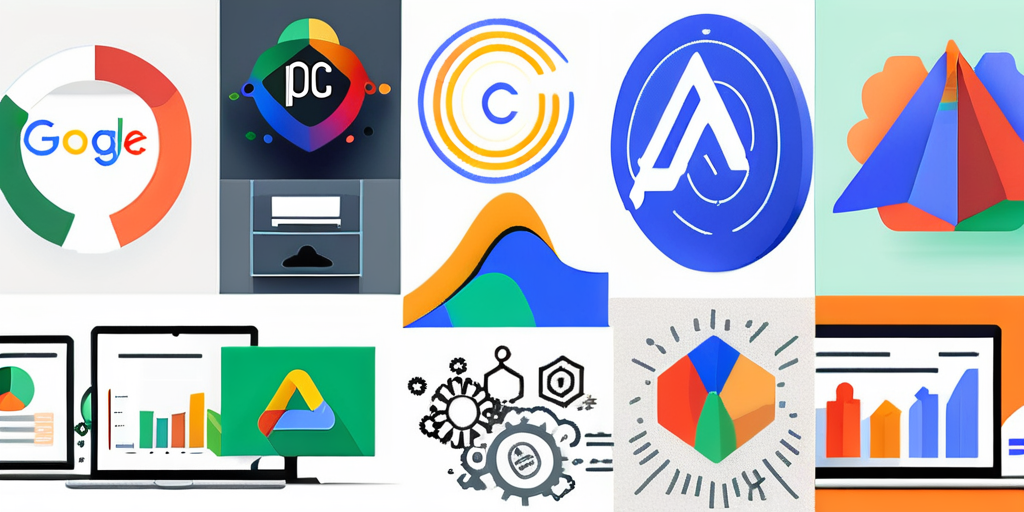The Ultimate Guide to PPC Marketing
Pay-per-click (PPC) marketing is a powerful tool in the digital marketing world. By understanding its basics and its key elements, you can create successful campaigns that drive conversions and increase website traffic. In this guide, we will explore what PPC marketing is, its importance in the digital marketing landscape, the different PPC platforms available, and how to set up your first PPC campaign.
Understanding the basics of PPC marketing
PPC marketing, also known as paid search advertising, is a model in which advertisers pay a fee each time their ads are clicked. This is a strategic approach that allows businesses to drive targeted traffic to their websites and only pay when someone shows interest by clicking on their ads.

Delving deeper into the world of PPC marketing reveals a dynamic landscape where businesses compete for visibility and customer engagement. The intricate dance of bidding on keywords and crafting compelling ad copy is a strategic game that requires constant monitoring and adjustment to stay ahead of the competition.
What is PPC marketing?
PPC marketing is a method of online advertising where advertisers bid on keywords relevant to their target audience. When a user searches for those keywords on search engines like Google or Bing, the ads related to those keywords are displayed at the top or side of the search results.
Furthermore, the success of a PPC campaign hinges not only on bid amounts but also on the quality and relevance of the ads themselves. Advertisers must create engaging and informative content that resonates with their target audience to drive clicks and conversions.
The importance of PPC in digital marketing
PPC marketing plays a crucial role in digital marketing campaigns for several reasons. First and foremost, it provides instant visibility for businesses to reach their target audience. With PPC, you have control over your ad placement and can ensure your ads are seen by potential customers. Moreover, PPC campaigns can be highly targeted, allowing you to focus on specific demographics, locations, and interests.
Moreover, the data gleaned from PPC campaigns goes beyond just measuring clicks and conversions. Advertisers can track user behaviour, engagement metrics, and even the impact of ad copy variations on performance. This wealth of information empowers businesses to refine their marketing strategies and enhance their overall digital presence.
Key elements of a successful PPC campaign
A successful PPC campaign relies on several key elements that work together to drive conversions and achieve your marketing objectives.

When embarking on a Pay-Per-Click (PPC) campaign, it is crucial to understand the importance of meticulous planning and strategic execution. By carefully selecting the right mix of elements, you can create a powerful campaign that not only attracts clicks but also converts those clicks into valuable leads and sales.
Choosing the right keywords
Keywords are the foundation of any successful PPC campaign. By conducting thorough keyword research and analysis, you can identify the terms and phrases your target audience is using when searching for products or services similar to yours. This helps ensure that your ads are shown to the right people at the right time.
Delving deep into keyword research involves more than just identifying popular search terms. It requires a nuanced understanding of search intent, competition levels, and seasonality trends. By uncovering hidden gems and long-tail keywords, you can tap into niche markets and maximise the effectiveness of your PPC budget.
Creating compelling ad copy
Your ad copy needs to grab the viewer’s attention and persuade them to click on your ad. It should be concise, compelling, and aligned with your target audience’s needs and wants. A strong call-to-action (CTA) is essential to encourage users to take the desired action after clicking on your ad.
Writing persuasive ad copy is both an art and a science. Crafting messages that resonate with your audience requires a deep understanding of their pain points, desires, and motivations. By incorporating emotional triggers and highlighting unique selling points, you can create ad copy that not only attracts clicks but also drives meaningful engagement.
Landing page optimisation
A well-optimised landing page is crucial for maximizing conversions. The landing page should align with the keywords and ad copy used in your PPC campaign. It should provide a seamless user experience, offer relevant information, and make it easy for users to convert, whether that means making a purchase, filling out a form, or subscribing to a newsletter.
Optimising a landing page involves more than just tweaking design elements or adding a few keywords. It requires a holistic approach that focuses on enhancing user experience, streamlining the conversion process, and instilling trust and credibility. By conducting A/B tests, analysing user behaviour, and refining your landing page based on data-driven insights, you can continuously improve its performance and drive higher conversion rates.
Different PPC platforms and their benefits
There are various PPC platforms available, each with its own unique benefits and advantages. Let’s explore some of the most popular ones:

Google Ads
Google Ads is the largest and most widely used PPC platform. It allows you to reach a massive audience and target your ads based on keywords, demographics, and interests. Google Ads provides extensive analytics and reporting, enabling you to track the performance of your campaigns and make data-driven optimisations.
Moreover, Google Ads offers a range of ad formats, including text ads, display ads, and video ads, giving advertisers flexibility in how they present their content. The platform also integrates seamlessly with other Google products, such as Google Analytics and Google Merchant Center, providing a holistic view of your online advertising efforts.
Bing Ads
Although not as popular as Google Ads, Bing Ads still offers valuable advertising opportunities. It reaches a different user base that may not be present on Google and can be a cost-effective option for certain industries. Bing Ads also provides useful demographic targeting options and extensive ad scheduling capabilities.
In addition, Bing Ads has a partnership with Yahoo, further expanding the reach of your ads across different search engines. This can be advantageous for businesses looking to diversify their PPC strategy and reach audiences beyond Google’s ecosystem.
Social media PPC
Platforms like Facebook, Instagram, Twitter, and LinkedIn offer PPC advertising options that can be highly effective for businesses targeting specific demographics or industries. Social media PPC allows for extensive targeting based on user interests, behavior, and demographics, which can enhance the relevance and reach of your ads.
Furthermore, social media platforms provide advanced retargeting capabilities, allowing advertisers to re-engage with users who have previously interacted with their brand. This can lead to higher conversion rates and improved ROI on advertising spend, making social media PPC a valuable addition to any digital marketing strategy.
Setting up your first PPC campaign
Now that you have a good understanding of PPC marketing and its key elements, it’s time to set up your first campaign. This section will guide you through the essential steps to get started.
Budgeting for PPC
Before starting your campaign, it’s crucial to determine your budget. Consider how much you are willing to invest and allocate a specific amount for your PPC efforts. It’s important to regularly monitor and adjust your budget as you gather data and insights from your ongoing campaigns.
Setting your campaign goals
What do you want to achieve with your PPC campaign? Define your campaign goals, whether it’s increasing website traffic, generating leads, improving brand awareness, or driving direct sales. Clearly outlining your goals will help you structure your campaign and measure its success effectively.
Tracking and measuring success
Implement tracking mechanisms, such as conversion tracking and Google Analytics, to measure the performance of your campaigns. Regularly review your data and evaluate your campaign’s success based on key performance indicators (KPIs) relevant to your goals. Adjust your strategies and tactics accordingly to maximize results.
By following these steps and continuously optimising your campaigns, you can unleash the full potential of PPC marketing and achieve outstanding results for your business. Remember to monitor industry trends, stay updated with changes in PPC platforms, and always be willing to test new strategies and techniques. With the right approach and a thorough understanding of PPC marketing, you can drive targeted traffic, boost conversions, and take your digital marketing efforts to new heights.
Now, let’s delve deeper into the world of PPC marketing and explore some additional factors that can contribute to the success of your campaigns. One crucial aspect to consider is keyword research. Conducting thorough keyword research will help you identify the most relevant and valuable keywords for your campaign. By targeting the right keywords, you can ensure that your ads are shown to the right audience, increasing the chances of attracting qualified leads and driving conversions.
In addition to keyword research, it’s important to create compelling ad copy that grabs the attention of your target audience. Your ad copy should be concise, persuasive, and highlight the unique selling points of your product or service. By crafting compelling ad copy, you can increase the click-through rate of your ads and ultimately drive more traffic to your website.
Furthermore, it’s essential to regularly analyse and optimise your landing pages. A well-designed and optimised landing page can significantly impact the success of your PPC campaigns. Make sure your landing page is relevant to the ad and provides a seamless user experience. Test different variations of your landing page to identify what resonates best with your audience and drives the highest conversion rates.
Remember, PPC marketing is an ongoing process that requires constant monitoring and optimisation. Stay up to date with the latest industry trends and changes in PPC platforms to ensure that your campaigns remain effective and competitive. By continuously testing new strategies and techniques, you can stay ahead of the curve and achieve exceptional results in your PPC marketing efforts.


